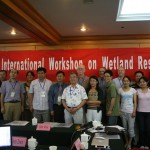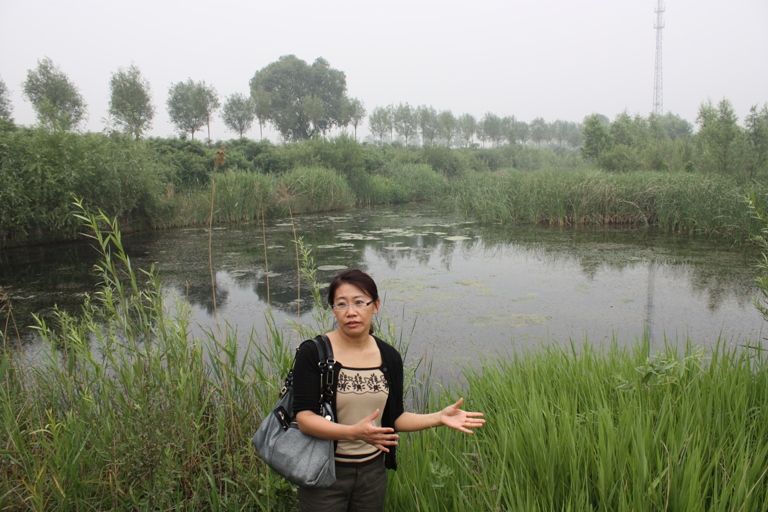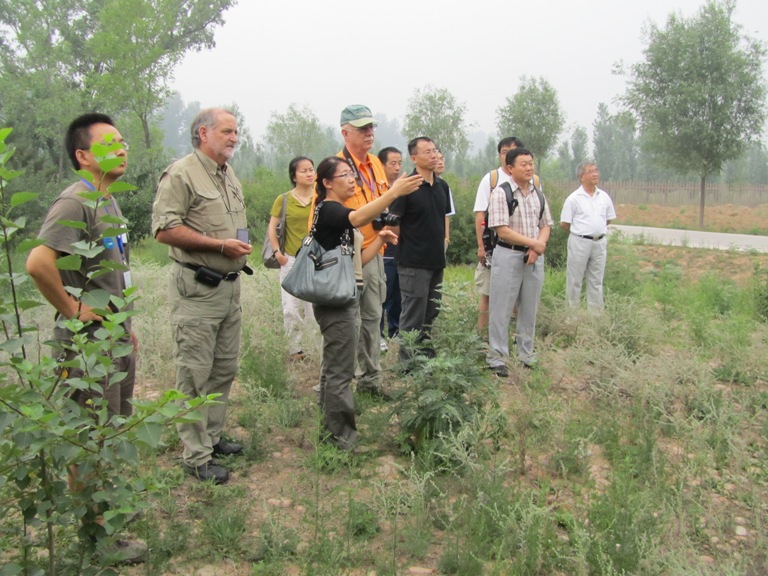The Ramsar Scientific and Technical Review Panel (STRP) wetland restoration, mitigation and management working group has been reviewing the existing Ramsar guidance on wetland restoration with the aim of determining if it needs updating and/or expanding. To help inform its review work, members of the working group have opportunistically participated in five wetland restoration workshops over the past year (in Avignon, Johannesburg, Volgograd, Seattle and Beijing), to help gain initial clarification regarding the usefulness of Ramsar’s existing wetland restoration guidance, and to seek input into determining whether or not the guidance needed updating or extending. In June 2011, STRP members and invited experts Max Finlayson, Rob McInnes and Kevin Erwin were able to attend a wetland restoration workshop in Beijing and, while representing their own institutions, were able to draw advice from the workshop discussions to inform the Ramsar STRP working group.
On June 22-25, 2011, the wetland restoration workshop hosted by Professor Cui Lijuan, of the Institue of Wetland Research, Chinese Academy of Forestry, was held in Beijing, China. Professor Cui, who is an STRP invoted expert, and her colleagues, Wen Xianji (World Wide Fund for Nature, Hong Kong), Zhou Demin (Capital Normal University), Wu Guofeng (Wuhan University), Liu Maosong (Nanjing University), Qin Pei (Nanjing University) and Jiang Ming (Chinese Academy of Sciences) made presentations that addressed a wide range of restoration topics and experiences from a Chinese perspective. More than a dozen of Professor Cui’s students also attended and contributed to the sessions. They are making significant contributions to the future of wetland restoration and management practice and research in China.
The presentations and exercises helped inform the STRP’s current work of determining if the current Ramsar restoration guidance adopted at Ramsar COP8 in 2002 needs updating and/or expanding, by identifying potential target audiences and ascertaining how useful the current guidance may be for tehm. Case studies in China, North America, Europe and Australia were discussed during the workshop. The workshop included visits to several wetland restoration sites around the Beijing area and the Beijing Wildlife Rescue & Rehabilitation Centre and the Institute of Wetland Research which hosts China’s Wetland Ecology Research Network program at 17 research stations located throughout the country.
Each of the STRP workshops on wetland restoration has provided keen insight into the needs of the target audiences of the guidance, often with similar comments and recommendations from the attendees. The following general wetland restoration issues have emerged:
- Need for a clearer policy statement on wetland restoration and its value and application across government sectors.
- Need for detailed technical guidance for practitioners across the full wetland restoration process, including locally relevant examples of restoration.
- Need to set clear objectives for restoration.
- Importance of demonstration sites as outdoor laboratories, raising awareness and showcasing to policy-makers.
- Importance of translation of guidance into local or regional languages.
- Need for future workshops and information exchange with policy makers, practitioners and researchers.
We warmly thank Professor Cui, her assistants Zhang Manyin and Song Hongtao, and our esteemed colleagues and new friends in China for hosting a very productive workshop. Their leadership in wetland restoration in China is impressive and we look forward to our future collaborations.
Kevin L. Erwin, STRP member klerwin@environment.com or kerwin@fgcu.edu
Workshop Images
- Beijing Workshop Participants
- Workshop Participants at the Yanquin Wetland Project


